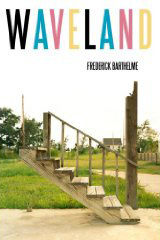 Waveland, set on the Katrina-ravaged Mississippi Coast, is Frederick Barthelme‘s first novel since Elroy Nights, a finalist for the PEN/Faulkner Award and a New York Times Notable Book. Booklist says: “In this powerfully atmospheric story of loneliness and risk, Barthelme slyly conceals emotional and philosophical intensity beneath the peculiarity of circumstance, the dazzle of hilarious repartee, and the luster of gorgeous prose.”
Waveland, set on the Katrina-ravaged Mississippi Coast, is Frederick Barthelme‘s first novel since Elroy Nights, a finalist for the PEN/Faulkner Award and a New York Times Notable Book. Booklist says: “In this powerfully atmospheric story of loneliness and risk, Barthelme slyly conceals emotional and philosophical intensity beneath the peculiarity of circumstance, the dazzle of hilarious repartee, and the luster of gorgeous prose.”
Frederick Barthelme is the author of twelve books of fiction. He directs the Center for Writers at the University of Southern Mississippi, edits the Mississippi Review, and is a member of Fictionaut’s Board of Advisors. Gary Percesepe conducted the following interview with Barthelme for New Ohio Review.
Gary Percesepe: You wrote an essay for the
New York Times Book Review in April 1988, back when the “minimalism slash postmodern” discussion in literature was still in vogue. It had a wonderful Veronica Geng title, “
On Being Wrong: Convicted Minimalist Spills Bean.” Your essay sparked a lively discussion among academic folk which was published in
Critique in 1990 as “Postmodernism: The Uninhabited Word, Critics’ Symposium.” Looking back twenty years later, what has changed, and what remains the same?
Frederick Barthelme: As I recall the essay came out a week before there was a gathering of sixties postmodernists at Brown, and the Critique piece was part of the proceedings thereof. In my essay there were too many jokes, but the drift of the thing was substantial enough. I was trying to argue that there was something subsequent to the postmodernism of the 1960s and 1970s, and that something was a combining of postmodernist sensibility and tactics with “realistic” characters and representational narrative. At root the idea was that playful, clever, self-conscious, surface-oriented writing had become too easy and too tired. We were ready for something else. At the same time, I didn’t want to revert to “realist” writing, I wanted to preserve the territory that Don [Donald Barthelme], Jack Barth, Hawkes, Coover, and Gass had won. I made the assumption, for example, that Ray Carver had figured out that if you could do anything, you could do nothing, and that was a postmodern twist on realism. As it turned out, Ray had some considerable help figuring this out, so maybe he wasn’t as postmodern as I imagined. Anyway, this idea prevailed for fifteen or twenty minutes and then the whole shebang did revert to old-fashioned realism, after which I stopped paying attention. Recently, the triumph of memoir, etc.
GP: Of the writers you mention, it would appear that William Gass never came to understand your appreciation of his work, nor your critique. He didn’t get Mary Robison either, or Ann Beattie. In the great parking lot of fiction, what spaces do Gass and the others currently occupy? And what do you make of Jonathan Franzen’s classification project of contract authors vs. status authors?
FB: I read the Franzen/Marcus exchange a few years ago and thought not much about it. The idea of “experimental work” is tired baggage carried endlessly forward from the sixties. I’ve seen nothing remotely fresh in an experimental way since then. Instead, over the last thirty years I’ve seen a lot of remakes masquerading as “experimental fiction,” leaning on the label for credibility, position, publication. Equally, the notion that “difficulty” is the purpose of some work (Gaddis or otherwise) is bone-headed. The contract/status model Franzen drummed up seems kind of self-serving and possibly not worthy of study.
As to the people I followed in the sixties, it seems to me now that Gass is most interesting for his essays on writing—Fiction and the Figures of Life being the first of those collections, I think. On Being Blue, which is an instruction manual of a kind, is a terrific book, particularly the first fifty pages. His “experimentation” (as in Willie Masters’ Lonesome Wife) had the scent of academe about it. Gaddis I’m not a big fan of because I always thought that in writing, the quality of the sentences was of the first importance. Barth and Hawkes are two longstanding favorites. Coover is very good early. And I also liked Cheever, and Joe McElroy. Lots of others. Anyone who writes well and carefully is O.K. with me. Anyone who doesn’t, isn’t.
GP: Often the “major writers” of any moment are lauded for writing big books on big subjects, so you get Rushdie, DeLillo, Pynchon, etc. More recently Denis Johnson, with the Vietnam book. You seem to work away from the “big brush” stuff—is there a reason for that, or is that happenstance?
FB: Some of each. I’m uncomfortable with the kinds of sweeping characterizations of the worlds and the cultures in which we live, the tendency to see the forest and miss the trees, so there’s a built-in reluctance to even approach a work that projects a schematic for a world that seems to me much more accidental and incidental. I’m not fond of the kinds of generalizations that are the stock in trade of weekly news magazines and “big” novels. On the one hand they’re phony as a result of being generalizations, and at the same time they always get the details wrong anyway—the people, the things they do and say, the way the day feels on the street, in the car, at the club, at the office, with the wife, with the lover, with the kids. It’s all TV of one kind or another. The big books tend to be more about the grandness of their authors than the grandness of the world, and my sense of things is that (a) most of us are not all that grand to begin with, and (b) the world itself is grand, astonishing first to last. So I tend in my stories and novels to stick pretty close to small scale stuff, people doing what they do, trying to find a way through the fog. I try not to miss the details that reveal us.
GP: Going back to Ray Carver—what’s your take on the latest dustup about the role of Gordon Lish in the Carver editing job?
FB: I don’t think much about it. Carver-Lish was a fortuitous coupling for Carver. It made his work much more fascinating in that moment. Some argue that the untouched work is better, and it may be, but my guess is that it would never have made the splash it did without Lish. Gordon is a complete nutball as an editor, no disrespect, and took advantage of the naiveté of writers who didn’t realize they could just say no. Or maybe it wasn’t Gordon taking advantage, but the writers realizing they might become significantly less famous if they just said no. In any case it’s a shame that people are taking the opportunity to pile on Lish yet again. He was and is a brilliant editor who rought
Carver out of a much rougher stone.
GP: Your new novel, Waveland, is set on Mississippi’s Gulf Coast, a place you’ve “branded” every bit as much as “Thomas Hardy’s Wessex County.” Unlike Hardy, you haven’t bothered to fictionalize the place-names. Waveland, Mississippi, was hard hit by Hurricanes Katrina and Rita, and you live not far away in Hattiesburg. What is it about this place that makes you want to return again and again?
FB: It’s a homemade Macondo. It’s not Waveland or Pass Christian (which, delightfully, is pronounced pass kris-chee-ANN down here), but a mental space where these characters play out their lives. That it is, in fact, a place in Mississippi means it’s far enough away from everything to be useful. It’s off the map, out of the game—a cardboard tree against a construction paper landscape on the wall of a cafeteria somewhere. Since I’m in the business of making up an entire world, it’s easier to start with a place with nothing in it, but which, at the same time, has the bona fides of a “real” place…
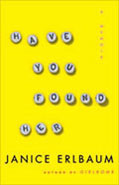 “How satisfying to watch Erlbaum survive adolescence and produce a smart, engaging book,” The New York Times Book Review wrote about
“How satisfying to watch Erlbaum survive adolescence and produce a smart, engaging book,” The New York Times Book Review wrote about 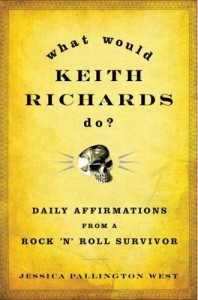
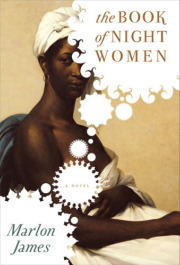 “You have to be careful when you declare that you’re on a mission. Sooner or later the mission becomes you and you become nothing.”
“You have to be careful when you declare that you’re on a mission. Sooner or later the mission becomes you and you become nothing.” 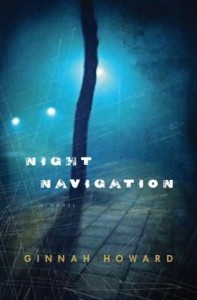 “Kafka wrote that a book must be the axe to the frozen sea inside us.
“Kafka wrote that a book must be the axe to the frozen sea inside us. 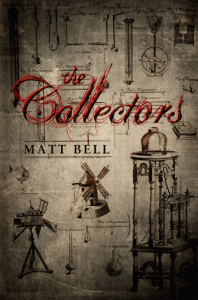
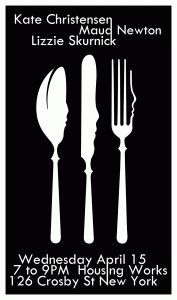
 “Soldiers listened intently and prayed with their M16s slung over their shoulders.”
“Soldiers listened intently and prayed with their M16s slung over their shoulders.” 
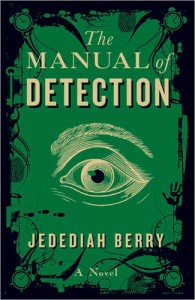
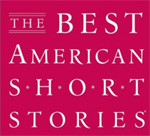
 Josh Maday
Josh Maday The Rose Metal Press Field Guide to Writing Flash Fiction
The Rose Metal Press Field Guide to Writing Flash Fiction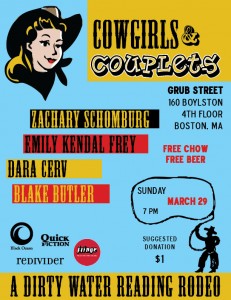
 At
At